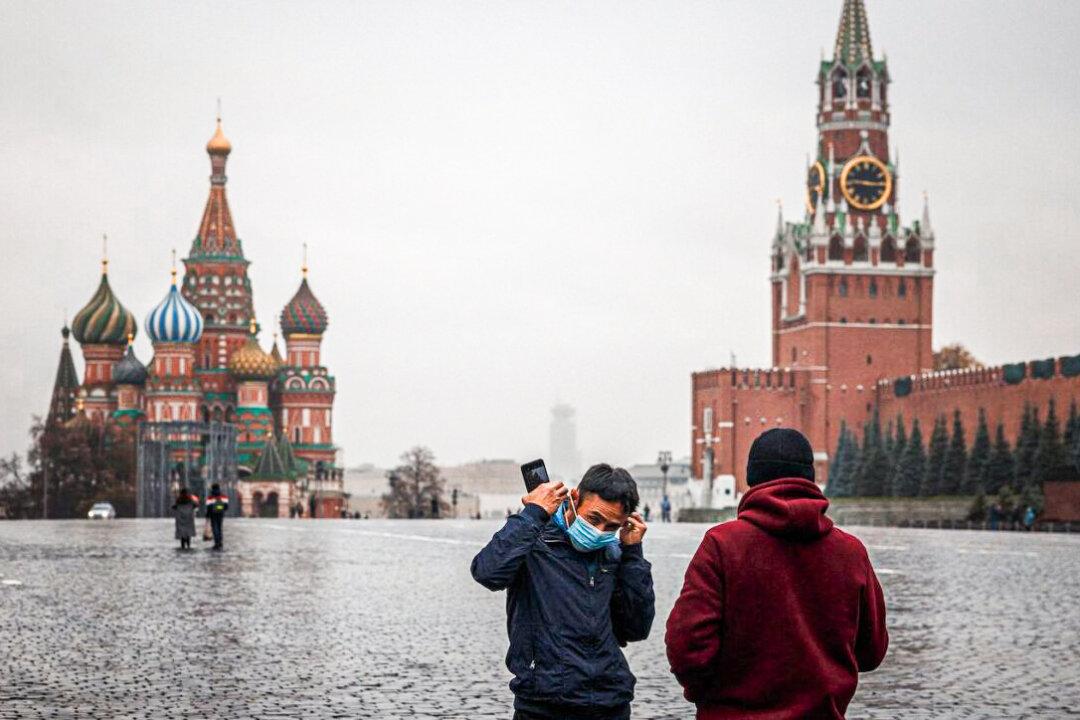The Centers for Disease Control and Prevention (CDC) added Russia to its highest travel risk category for COVID-19 on Monday, following a surge in new positive coronavirus cases.
The CDC designated Russia as a Level 4 rating following reports that the nation has reached more than 500 positive COVID-19 cases per 100,000 people for the past four consecutive weeks.





